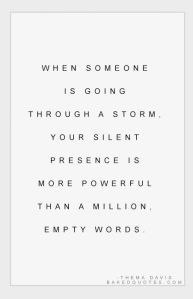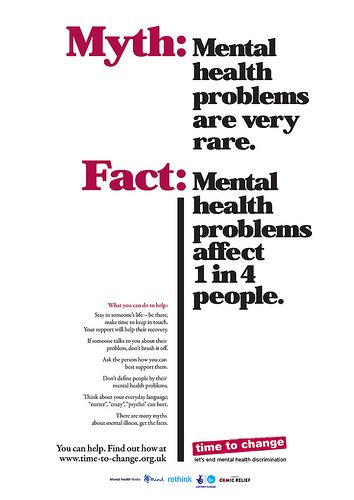Boundary Setting
I’d like to welcome Ellen back with her second guest post for us! If you remember, in her previous article she talked about boundaries and how they can impact on our sense of SELF. She discussed the signs that tell you how to know when your boundaries are being violated. You can find her previous article here if you’d like to refresh your memory. If you endlessly to give (or take from) others, feel guilty, don’t speak up for yourself or rescue others, chances are that you’ll find this new article helpful.
In it, Ellen talks about how you can set healthy boundaries. This promotes feelings of self-esteem and shows yourself and others that you are worthy of respect, appreciation and love.
Sometimes though, implementing boundaries can be tough. Emotions such as guilt and fear can show up, and others can try to blame you or behave badly, providing you with some difficult challenges and often sending you into hiding. However if you start small you can ease into the groove of boundary setting. Try practising what you want to say, and set boundaries with the little things that really don’t matter much. Once you feel a little more comfortable, move on to some of the bigger things. And as Ellen suggests below, talking with a professional counsellor or psychologist can help.
Check it out …
——————————————————————-
Hi again. Nice to see you.
Last time we talked about personal boundaries – what they are, how they help us and how, if they’re not firmly in place, they can have a negative impact on our relationships and our self-esteem. Today I’ve got some tips on how to establish strong personal boundaries.
There are three areas of life in which strong personal boundaries are important. These are:
- Your time. If you are clear about what you will and won’t do to help other people you will be able to make good decisions about how to use your time. Your time is yours and while it’s always lovely – and good – to be able to help others, your time is also finite. There is only so much of it you can give away. When we bend over backwards to always help others, whether it’s family, friends or colleagues at work, we give away our time and that leaves less for ourselves. And you and I know that there’s precious little of that to begin with.
So what do we do?
Think about where others might be crossing your boundaries in terms of your time. Do you have people in your life who are always asking you to help them out? Is there someone at work who requests your assistance to do things you know they are capable of doing themselves? Do you have family members who regularly drop in when it’s not convenient? Identify where your time boundaries are a bit loose and tell people that things need to change. Be firm but respectful. Don’t feel afraid to tell others that you’re sorry but you can’t help them this time. They might be a little put out at first but you will feel better for asserting yourself and they will come to respect your time as yours. Encourage them to find solutions on their own, and in the case of inconvenient visitors, make a plan to catch up at a time that’s better for both of you.
- Your emotions. Your emotions are precious, and they’re Positive and negative emotions keep us balanced and healthy but you need to protect them with good boundaries. If you let others say hurtful things to you your ability to manage your emotions lessens and, long term, this can lead to anxiety and depression.
What to do?
Be alert to hurt caused by other people in your life (sometimes we get so used to this behaviour that we stop noticing it – we just feel the hurt) and be ready to say something. People can say hurtful things without realising the impact that it has. At other times they might know exactly what they’re saying and they’re trying to push your buttons. Be clear on what you will and won’t accept from others and tell them when they’ve crossed the line. Try phrasing it as, ‘When you said…., I felt…. Please don’t speak to me that way.’ This can be hard, it takes practise and it won’t always work out as well as you might hope but if you’re firm and consistent you’ll feel better about you and other people will eventually get the message and their respect for you will grow.
- Your values. Have you ever been upset by someone’s behaviour but you weren’t sure why it affected you the way that it did? You might have been agitated about a partner’s drinking, or a child’s friends or a friend’s partner! At times we experience what psychologists’ call ‘dissonance’ between the actions of others (and ourselves) and our values. Our values are our personal standards of behaviour or our beliefs about what is important in life. If you have strong beliefs – or values – around what is and isn’t acceptable behaviour in relation to alcohol use, for example, and someone close to you is drinking up a storm on a regular basis, this can be really upsetting.
So what can we do?
This is a tricky one because ultimately we can do very little do change other people and the way that they act. You might find that just being aware that your emotions are stemming from dissonance between your values and the other person’s behaviour can be very empowering. You can then decide how you’re going to respond. You might alert them to the issue and ask them to not behave in that way around you. Or you might chose to remove yourself from upsetting situations. Talking it through with a counsellor or psychologist can be really helpful too, particularly if the situation is complex. A bit of brainstorming with a professional can really help you to clarify your boundaries and to come up with ideas about how to handle certain situations.
Above all else, having good personal boundaries starts with knowing who you are and what’s important to you. Spend some time in self-reflection and feel confident that you have the power to make boundaries work for you.
Onwards and upwards,
Ellen.
If you’d like to read more, here are some great articles.
http://psychcentral.com/blog/archives/2014/03/10/7-tips-for-setting-boundaries-at-work/
http://happinessweekly.org/2014/03/02/personal-boundaries-why-we-need-them-and-how-to-set-them/
———————————————————–
Ellen is a Psychologist, author, mum. Melbourne-born, she spent most of her 20s and 30s in Sydney and now lives in beautiful Ballarat, in the Victorian Goldfields. Ellen writes stuff to inspire and sometimes to challenge. She knows a lot of stuff about how people work at work, how people are different and unique and how people make the most out of life. Ellen writes at www.potential.com.au or if you’d like ask a question or share a story she’d love to hear from you! You can email her at psych@potential.com.au.






































